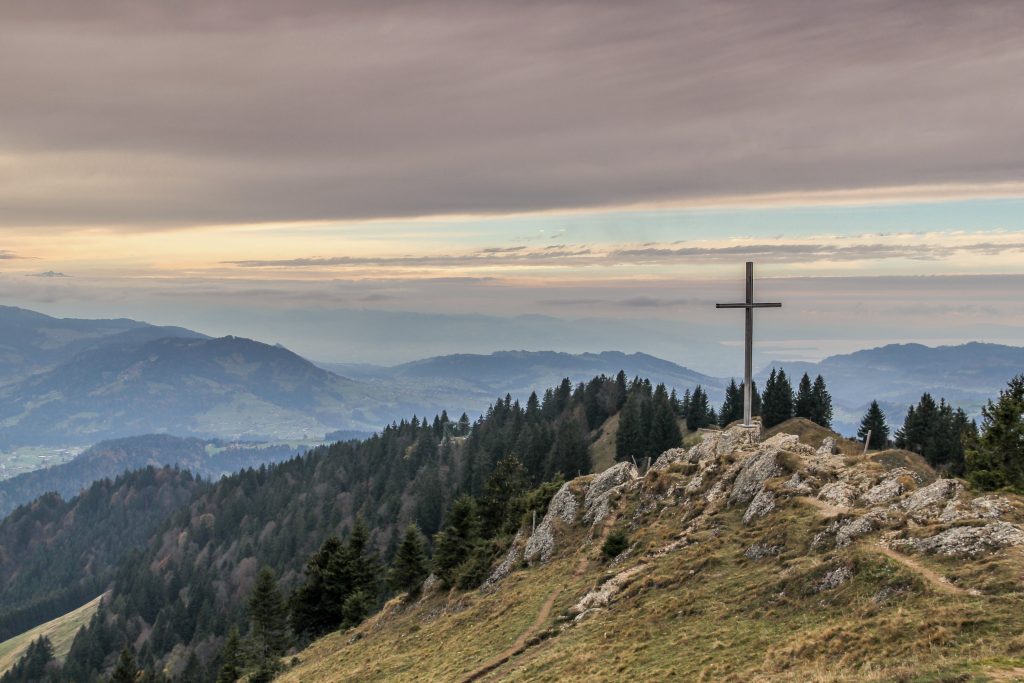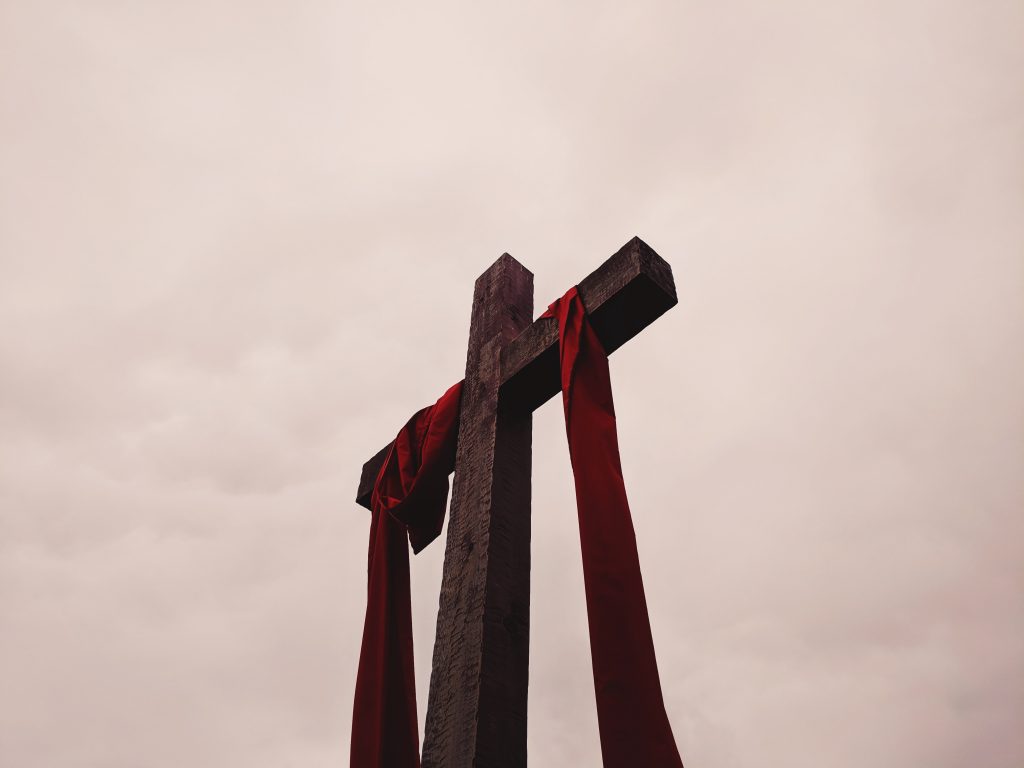Once upon a time, Country artist Dolly Parton made a statement that got people talking. She said “I still believe in Santa, the Easter Bunny, the Tooth Fairy, and true love. Don’t even try to tell me different.” Many people found the quote endearing and humorous but it was also indicative of the rampant consumerism that has overtaken many Christian holidays; their true meanings lost in a sea of symbols and events.
If you looked at popular culture today, you would be forgiven for thinking Easter was indeed about bunnies, gifts or discounts at your favourite shop. Of course, this is not the case, but this is what we are inundated with. In this period, it’s important we revisit the meaning of Easter and why His death, burial, and resurrection of Jesus Christ matters.

Origins of Easter
The origins of Easter are obscure and wildly contested. It is often assumed that the name Easter comes from a pagan figure called Eastre (or Eostre) who was celebrated as the goddess of spring by the Saxons of Northern Europe. According to the theory, Eastre was the “goddess of the east (from where the sun rises),” her symbol was the hare (a symbol of fertility), and a festival called Eastre was held during the spring equinox by the Saxons to honor her. However, this theory on the origin of Easter is highly problematic.
The problem with associating the origin of Easter with the pagan goddess Eastre/Eostre is that we have no hard evidence that such a goddess was ever worshipped by anyone, anywhere. The only mention of Eastre comes from a passing reference in the writings of the Venerable Bede, an eighth-century monk, and historian. Bede wrote, “Eosturmonath has a name which is now translated as ‘Paschal month,’ and which was once called after a goddess of theirs named Eostre, in whose honour, feasts were celebrated in that month. Now they designate the Paschal season by her name, calling the joys of the new rite by the time-honoured name of the old observance” (De Temporum Ratione). And that’s it. Eostre is not mentioned in any other ancient writing; we have found no shrines, no altars, nothing to document the worship of Eastre.
It is possible that Bede simply extrapolated the name of the goddess from the name of the month. Christians celebrate Easter as the resurrection of Christ on the third day after His crucifixion. It is the oldest Christian holiday and the most important day of the church year because of the significance of the crucifixion and resurrection of Jesus Christ, the events upon which Christianity is based (1 Corinthians 15:14). In some Christian traditions, Easter Sunday is preceded by the season of Lent, a 40-day period of fasting and repentance culminating in Holy Week and followed by a 50-day Easter season that stretches from Easter to Pentecost. (Source)

Because of the commercialisation and possible pagan origins of Easter, many churches prefer to call it “Resurrection Sunday.” The rationale is that the more we focus on Christ and His work on our behalf, the better. Paul says that without the resurrection of Christ our faith is futile (1 Corinthians 15:17). What more wonderful reason could we have to celebrate! Whether we call it “Easter” or “Resurrection Sunday,” what is important is the reason for our celebration, which is that Christ is alive, making it possible for us to have eternal life (Romans 6:4)!
Why does Easter Matter?
The resurrection of Jesus (alongside his crucifixion) is the central historical event in the Christian faith. Without the resurrection there would be no Christianity or at least, it wouldn’t be real and powerful. “If Christ has not been raised,” wrote Paul, “then our preaching is in vain and your faith is in vain” (1 Corinthians 15:14).
I, Mike Omoniyi am a Christian today because I believe in the resurrection. I am convinced that after dying a violent death on a cross on a Friday afternoon in 30 A.D., Jesus of Nazareth came back to life and emerged from the tomb on Sunday morning. This is not an esoteric or theoretical belief, its a belief that those events actually happened and a man really did come back from the dead. This is not easy to believe, but it is true and is the most pivotal event in human history.
What did Easter usher in?
Jesus had come into town for the Passover celebration and was nearing the time when he would be betrayed by one of his disciples, publicly humiliated and mocked, beaten beyond recognition, and hung on a cross to die. It was the night before his suffering when he made his special request for his followers to remember that He gave his body for them and poured out his blood as a sacrifice for them.
One of the clearest depictions we see in the bible about the true people of easter is through the depiction of The New Covenant
The New Covenant
In Luke 22 we get a picture of the night before his death:
When the time came, Jesus and the apostles sat down together at the table. Jesus said, “I have been very eager to eat this Passover meal with you before my suffering begins. For I tell you now that I won’t eat this meal again until its meaning is fulfilled in the Kingdom of God.” Then he took a cup of wine and gave thanks to God for it. Then he said, “Take this and share it among yourselves. For I will not drink wine again until the Kingdom of God has come.” He took some bread and gave thanks to God for it. Then he broke it in pieces and gave it to the disciples, saying, “This is my body, which is given for you. Do this to remember me.” After supper, he took another cup of wine and said, “This cup is the new covenant between God and his people—an agreement confirmed with my blood, which is poured out as a sacrifice for you.” Luke 22:14-20
The heart of Easter lies in his words, “the new covenant between God and his people.”
To put this new covenant in context we must look at history. Long before Jesus was born in the first testament (Old Testament), God made other covenants with His people (the Israelites) – some to multiply them, some to bless them, and some to give them land. All along the way, God required believers to recognise their sinful nature, confess their sins, ask for forgiveness for their sins, and offer specific animals to the priests as sacrifices for their sins. Their religious observance of Passover included sacrificing unblemished lambs, just as the Israelites had done when they painted their doorposts with the lambs’ blood the actual night of Passover – when Moses led God’s people out of Egypt (Exodus 12:11-13).

The sacrificial lamb was a significant part of sparing the lives of the Isrealites on Passover as well as in future remembrances of the event. God gave Moses and Aaron specific instructions on how to honor God with annual Passover celebrations. Lamb was the pinnacle of the Passover meal (and still is today). The lambs were to be without blemish and even lived with the families for several days before they were sacrificed, adding to the understanding that the ultimate sacrifice was close to the hearts of those whose sins were atoned for.Easter and Passover have a special relationship for many reasons. Jesus became the “lamb without blemish” as he sacrificed his life for the sins of all who believe in him – to bring them into right relationship with the Father. Just as the Israelites celebrate freedom from their slavery to the Egyptians as they celebrate Passover, Christians celebrate the victory over sin and death signified in Jesus’ death and resurrection. Jesus said the new covenant between God and his people was “an agreement confirmed with my blood, which is poured out as a sacrifice for you.” It was no coincidence that Jesus gave up his life for all at the time of Passover. It was the appointed time, chosen by the Father.
In John 1:29, as he sees Jesus approaching, John the Baptist announces to the crowd around him, “Look! The Lamb of God who takes away the sin of the world!”
John the Baptist knew that Jesus was the son of God, the long awaited Messiah, the one whom God’s prophets had promised to save mankind from their sins and to give them a deep heartfelt relationship with God the Father. The new covenant would be an everlasting covenant, (Jeremiah 31:31-34, Jeremiah 32:39-42, Isaiah 55:3). Jesus, our sacrificial lamb, our Savior, our God, our Redeemer – he laid down his life as our sacrificial lamb to pay for our sins. When he rose from the dead three days later, he gave victory over eternal separation from God (death) to all who put their faith and trust in him. That is the new covenant – everlasting life spent with God through faith in all that Jesus Christ has done and continues to do.
This is why we have the access we have. This is why easter matters.